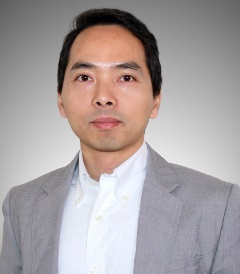Back
NBD Seminar Series (on-site): Development and application of human neural organoids
Abstract:
Neural organoids are in vitro three-dimensional models that mimic the human brain or other structures of the nervous system. Beginning with stem cells, neural organoids are formed through unguided or guided neural differentiation under three-dimensional suspension culture conditions, relying on cell self-organization. In the past decade of research, we have focused on guided differentiation to construct various human brain region-specific organoids. Furthermore, by integrating multiple brain regions or cell lineages, we have explored the development of more complex human brain organoid technologies, providing new models for studying brain development, function, diseases, and drug effects in the context of human genetic backgrounds in vitro. As a cutting-edge technology, neural organoids still face various technical challenges that need to be overcome. This talk will introduce our efforts in the refined construction of human neural organoids, including how to build organoids that possess characteristics of human brain nuclei.
| Venue: | Room 7C, Level 7, Duke-NUS |
| Host: | Asst Prof Cao Mian Principal Investigator
Neuroscience & Behavioural Disorders Programme, Duke-NUS |
| Contact Person: | Joyceline Ng (joyceline.ng@duke-nus.edu.sg)
Neuroscience & Behavioural Disorders Programme, Duke-NUS |
Date and Time
29 Nov 2023 @ 14:30 - 29 Nov 2023 @ 14:30
Speaker

Dr Yangfei Xiang
Assistant Professor & Principle Investigator
School of Life Science and Technology
ShanghaiTech University
Dr. Xiang received his Ph.D. degree in 2013 from Jinan University, China. He worked as a postdoc at Yale Stem Cell Center and the Department of Genetics at Yale University from 2013 to 2019 and associate research scientist from 2019 to 2020. Dr. Xiang joined the School of Life Science and Technology at ShanghaiTech University as a tenure-track assistant professor in March 2020. His main research topic in the past decade includes the development and application of brain region-specific organoids and complex brain organoid models based on human pluripotent stem cells. Dr. Xiang developed some of the early models of cross-brain-region neural circuits and organoid vascularization, by incorporating distinct brain region-specific organoids and cell fate programming. His work has been highlighted in a line of articles and organoid-themed collections of prestigious journals, including introduced on the topic Methods to Watch 2021 by Nature Methods.